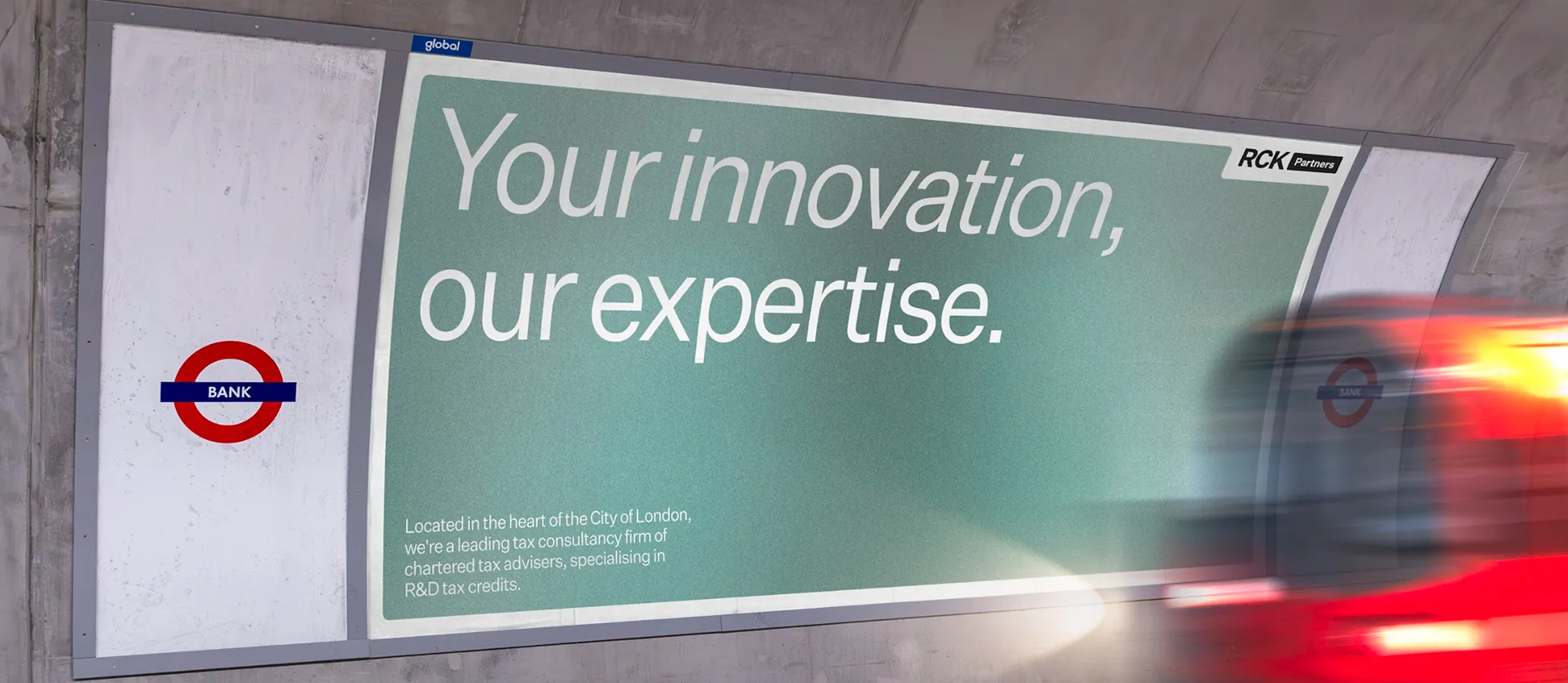Our Services
01.
R&D Tax Relief
02.
Capital Allowances
03.
Business Rates
04.
Enquiry Resolution Services
05.
Land Remediation Relief
06.
Patent Box Relief
RCK are a leading firm of chartered tax advisers, based in the City of London. We specialise in R&D Tax Credits, Capital Allowances, Business Rates, Patent Box Relief, Land Remediation Relief and Enquiry Resolution Services.


Each claim RCK submit to HMRC is reviewed by our independent, in-house compliance and review team. This team is comprised of former HMRC inspectors, a lawyer, and accountants. These individuals have sat on both sides of a claim.
RCK’s consultants are specialists not generalists. We hire directly from industry so our consultants have a vocational understanding of the topics in which they prepare claims for and can understand the technical nuances of each project. At RCK, we carefully pair consultants with clients, considering their backgrounds and expertise.
Your innovation deserves more than a process; it deserves a partner. At RCK, we are invested in your innovation and pride ourselves on bringing a personalised partnership, to a traditionally transactional industry.

"Our experience with RCK was fantastic from start to finish - the team were very easy to work with and clearly knew their stuff. They guided us through our R&D tax claims with no stress and great results. Helpful, responsive, and genuinely interested in understanding our business - we couldn't have asked for a smoother process."

"Having previously worked with another provider, we decided to instruct RCK due to their expertise within the defence sector and their in-house compliance review team. It was great to partner with the team at RCK, who were personable and went above and beyond to support us throughout the process. The expertise of their R&D consultants enabled a streamlined process and due to the consultant's technical backgrounds they understood the intricacies of the R&D projects we were claiming for. Subsequently, RCK identified additional projects as R&D for tax purposes when undertaking scoping, which enhanced the value of our claim. This gave us additional funding to re-invest into the business. We would highly recommend RCK to anyone who is considering choosing them as a provider due to the peace of mind they offer, and technical expertise they bring to the table."
.png)
“Staying at the global forefront of research and development is a top priority for us, and the team at RCK have been instrumental partners in allowing us to realise the fullest benefit of the UK’s R&D tax relief scheme. The scheme has allowed us to reinvest in bold innovations such as the Sentinel System, a fully integrated modular system for subsea habitation. Our mission is to develop tools that make ocean exploration as routine as terrestrial exploration is today, and financial incentives like R&D tax relief offer crucial support, enabling us to pursue ground breaking projects that push the limits of engineering.”

Nuclear Industry Association

Tank Storage Association (TSA)

SPRK Capital

Medilink Midlands

Stone Federation

Fund Onion
.png)
1818 Venture Capital

London Tech Leaders

Explore our presence across the UK and Ireland. Our regional locations ensure local support and expertise wherever you are.
Visit Ireland Website